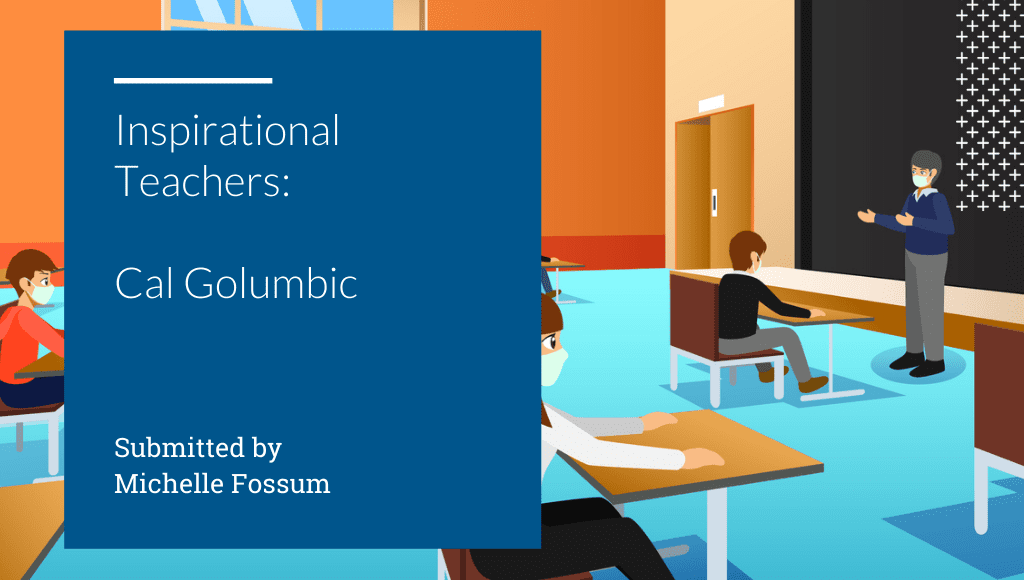Since 2017, Charter School Capital has held an annual essay contest celebrating exceptional teachers. We call it the Dewey Awards, in celebration of Mr. Richard Dewey – a teacher who provided exceptional mentorship to our founder and CEO, Stuart Ellis. Every year we get a brilliant selection of stories written by students from charter schools all over the nation. This year’s winners are featured here. But each of these stories is worth sharing.
This week we bring you a story written by Michelle Fossum of City High Charter School, about Cal Golumbic – her professor at Pennsylvania State University.
—————————————————————
By the time I was eight years, I knew I wanted to be a writer. I had written my first poem, about rainbows and little birds, when I was six on my mom’s old typewriter, a hulk of a thing that only typed in capital letters. As the years went by, I filled journal after journal with my words. When I was a teenager, I would stay up all night fueled by cups of strong black tea and work on novels, plays, soap operas, songs.
Despite all of this time spent putting pen to paper, writing anything for school was another story. Essentially, my vocabulary far outpowered my work ethic. I eventually learned that I could procrastinate and still manage to craft a satisfactory essay or research paper at the last minute. My teachers were dazzled by my polished grammar and scintillating syntax. Ultimately, I graduated from high school without ever earning anything less than an A in any English class.

As I prepared to go to college, I had confidence that my successful hard-work avoidance strategy could continue. By my sophomore year at Penn State, I had a proven regimen: slack off, pull an all-nighter, and then use my finely-honed procrastination skills to keep my A’s. This worked fine until I stepped into Cal Golumbic’s Philosophy class.
Golumbic, who insisted we use only last names, was a former lawyer who peppered his lectures with non-sequiturs that somehow managed to make sense by the end of class. His style was operatic, his manner baroque, and his words biting. Despite all this, I actually thought that a written-the-night-before essay analyzing Plato’s Cave was going to bamboozle this man, someone who had argued cases before the Supreme Court. Nope.
Golumbic returned my paper with jagged words scrawled indelibly in red across the first page: “This paper should be an A. But I know your heart wasn’t in it. I am failing you. Rewrite this and earn your A.” It was infuriating. It was irritating. It was devastating. And it was the most accurate feedback I had ever received from a teacher in all of my years of education. It resonated with me about both my writing and my life. His comments illuminated, as shadows on a wall, how my own hesitation and lack of confidence had made perfunctory performances routine. So I rewrote the paper and earned my A.
Now, anytime I feel tempted to show apathy or indifference towards my work, I think back to Golumbic’s words and proceed as best I can with focus and integrity. He was the best teacher I ever had.

